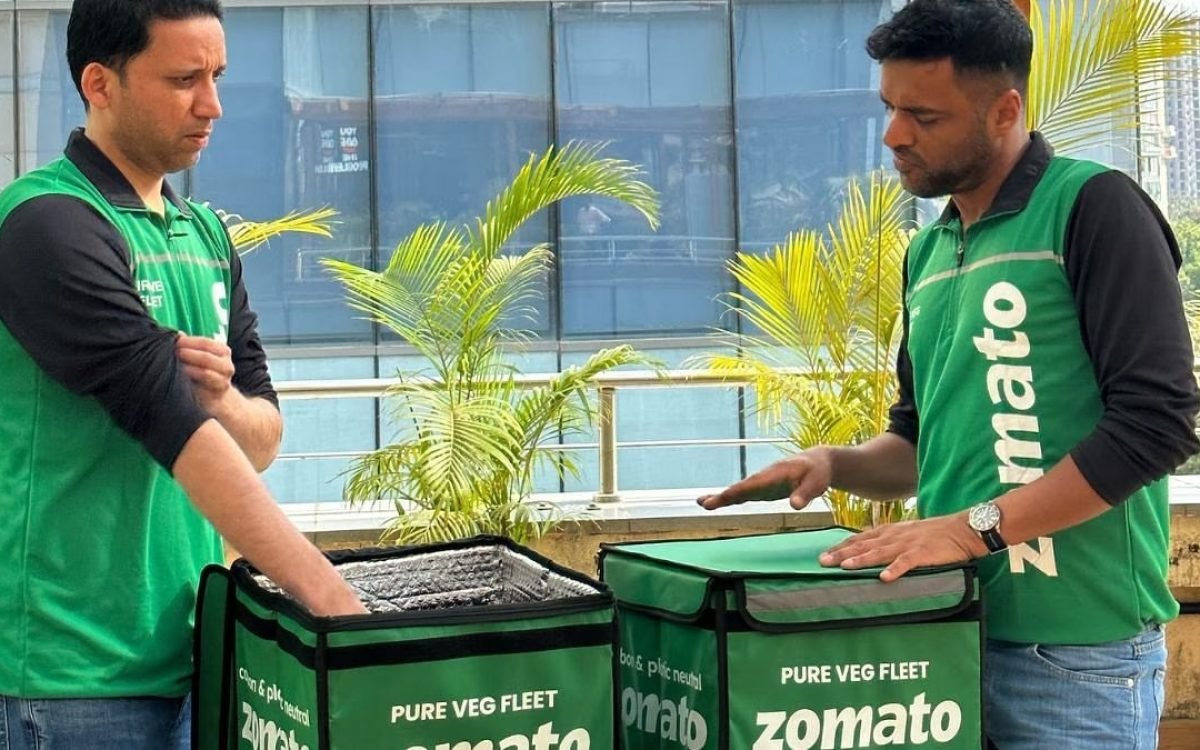In recent days, the culinary world has been abuzz with the controversy surrounding Zomato’s latest feature: “Pure Veg Mode.” What started as a seemingly innocuous addition to the food delivery app has reignited debates about the politicization of dietary choices in India, raising questions about freedom, diversity, and the encroachment of authoritarianism on personal preferences.
Zomato’s decision to introduce a dedicated fleet service for vegetarian orders, complete with differently dressed delivery partners, has sparked a flurry of reactions across social media and public discourse. While some applaud the move as catering to the preferences of a significant portion of the population, others see it as a troubling sign of the times—a manifestation of the growing trend of moral policing in the culinary sphere.
The introduction of “Pure Veg Mode” is not just about convenience or catering to customer preferences; it reflects deeper societal divisions and political agendas at play. In a country known for its culinary diversity, the emphasis on vegetarianism as a moral imperative threatens to marginalize those with different dietary habits and traditions. What began as a discussion about food choices has morphed into a battleground for ideological supremacy, where the right to decide what goes on one’s plate is increasingly contested territory.
The broader context of this debate extends beyond Zomato’s latest feature. It speaks to a larger pattern of governmental interference in matters of food and dietary preferences. The BJP-led governments’ crackdown on meat consumption, from beef to other non-vegetarian items, underscores a troubling trend towards regulating what citizens can and cannot eat. This encroachment on personal liberties not only undermines India’s culinary heritage but also erodes the principles of pluralism and tolerance that are integral to its identity.
Furthermore, the implications of Zomato’s “Pure Veg Mode” extend beyond the realm of food delivery. They highlight the subtle ways in which societal norms and prejudices shape our everyday experiences, from where we can live to what we can eat. The exclusionary practices observed in housing societies and rental agreements, where vegetarianism becomes a criterion for acceptance, underscore the insidious nature of culinary discrimination.
As we grapple with these challenges, it is essential to reaffirm the principles of freedom and inclusivity that underpin India’s culinary landscape. Rather than allowing food preferences to become a battleground for ideological warfare, we must celebrate the diversity of flavors and traditions that make Indian cuisine truly extraordinary. Only by embracing culinary pluralism can we preserve the essence of India’s gastronomic legacy for generations to come.









